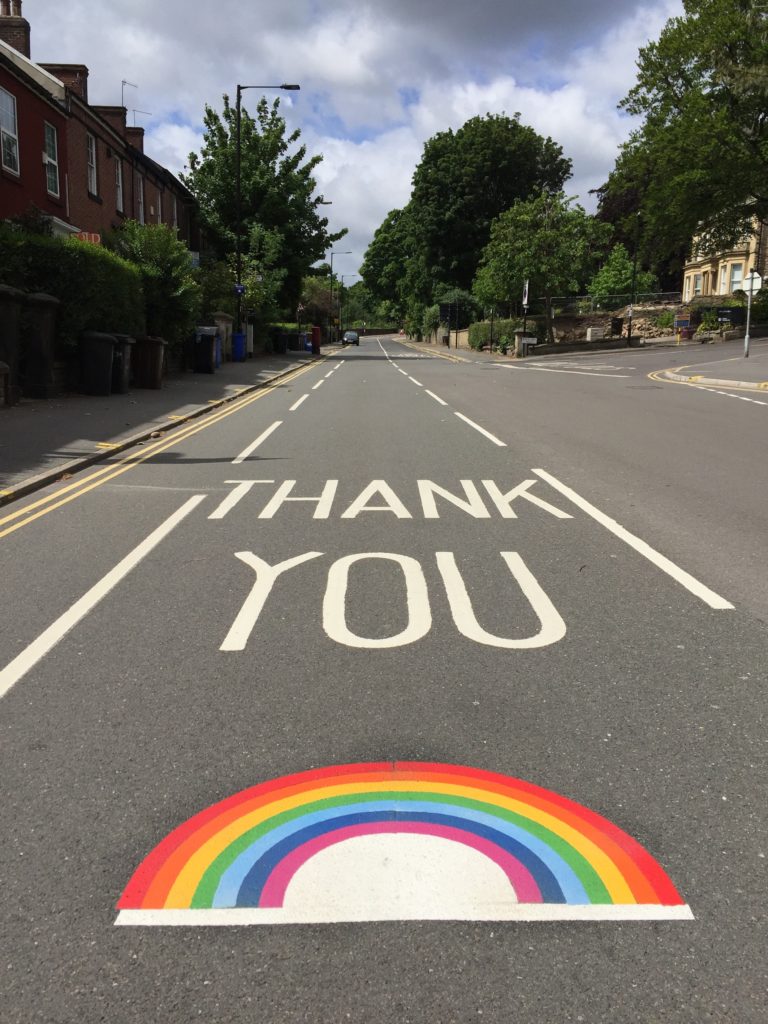Contents
Why is Giving Thanks Good for Your Wellbeing?
Gratitude is associated with all sorts of positive emotions and we generally regard it as a good thing, but do you actually know how a “thank you” creates neurological change? Maybe you’ve already tried to cultivate daily habits of giving thanks because you heard it was a healthy habit. However, maybe it didn’t stick, or perhaps you just want to know more to better practice it. Either way, once you understand how the effects work, it may give you a better chance in making that permanent transformation you’ve been needing. Consequently, there is a lot of science on giving thanks and its promotion for better mental wellbeing. Below, I will explain the shifts created through neurological changes when we give thanks to others.
“Gratitude is a vaccine, an antitoxin, and an antiseptic.”
– John Henry Jowett
The Neuroscience that Cultivates Positivity

How does giving thanks work with our mental and physical wellbeing? In 2015, Indiana University conducted a study on how expressing gratitude alters neural activity in the brain for people with anxiety and depression. As a result, gratitude exercises activated neural pathways of the brain correlated to empathy. Furthermore, it had a significant impact on the neuromodulation of the medial prefrontal cortex area. ‘Neuromodulation’ is the alteration of cellular and synaptic properties of neurons that allow change in neurotransmissions. Unlike individual neurons, neuromodulators have the power to affect entire brain regions.
Giving thanks is considered a non-medical “anti-depressant” to some because it naturally affects our mood. The following parts of the brain have measurable changes when we switch into gratitude mode:
Giving Thanks Increases Dopamine & Serotonin
Dopamine is the feel-good neurochemical in our brain that makes us feel pleasure. Above all, it’s responsible for our feeling of happiness, optimism, motivation, focus, and alertness. On the other hand, serotonin is considered the harmonizing ‘mood stabilizer’ in our brain that regulates our anxiety and mood. For example, individuals with depression tend to lack in serotonin. An increase in both dopamine and serotonin, which are known as our ‘happy chemicals’, leads to happiness, better memory, and better sleep.
Giving Thanks Activates the Prefrontal Cortex
Scientists have found that the medial prefrontal cortex is vital in feeling empathy towards others. In fact, this region of the brain is a processing hub that evaluates risk and rewards. Moreover, it connects to the deeper parts of our brain that produce kicks of pleasurable neurochemicals under the right circumstances. In addition, the ventral and medial regions of the prefrontal cortex abstractly represent the brain area that helps with social processing, complex reasoning, and how we represent ourselves. What’s more, several MRI studies show that continual practice in acts of gratitude activates this ventromedial prefrontal cortex. This part is known to function when we relieve pain, nurture empathy, show prosocial behaviors, and feel satisfaction in life.
Giving Thanks Activates the Hypothalamus
In studies, subjects who showed more gratitude overall had high activity in the hypothalamus. While the hypothalamus is a very small part of the brain in size, it controls essential bodily functions. For example, control in appetite, body temperature regulation, sleep cycles, hormones, and emotional response. It also influences our metabolism and stress levels. For instance, appreciative thoughts can trigger ‘good’ hormones and positively affect the immune system. High activity in the hypothalamus leads to many improvements in the physical benefits of giving thanks, such as better heart rate, blood pressure, and sleep.
Gratitude Builds Resilience to Stress & Pain

Gratitude can enhance the good in our lives, but what about the bad? Remarkably, giving thanks makes us more resilient to stress and pain, therefore helping us cope with difficulties in our life. This seems to be accompanied by the aforementioned neurological shift that occurs when our minds enter a positive state.
In addition, multiple studies indicate that giving thanks can help with mental wellbeing. For example, this includes decrease in suicidal thoughts, resilience to traumatic events, stronger coping strategies towards stress, protection from burnouts, and increase in self-esteem. Conscious practice in giving thanks can build a strong and healthy psychological mentality that can soften the hardship when it hits. In fact, life crises can also in-turn make us a more grateful person too. For example, try to remember the bad times, and how you endured and survived that situation. Then, compare that to where you are in life now. This can aid as a means to enhance your sense of gratitude and happiness. Therefore, looking at past negative memories from the perspective of growth and gratitude can help us through upcoming challenges in life.
Stronger Community Through Giving Thanks

As mentioned above, when our ventromedial prefrontal cortex is activated through giving thanks, altruism (the selfless concern for other people’s wellbeing over yourself), and empathy grow. Simply feeling grateful, empathetically understanding other perspectives, recognizing the beauty in social interactions, and giving more to people can naturally create better relationships. Data also suggest that expressing gratitude lights up our “mu-opioid” (a receptor that triggers our brain’s reward system), which is the same part that activates during close interpersonal touch and relief from pain. In other words, feeling grateful towards others creates a more relaxed, stress-free environment for us and the capacity to bond with others.
Research indicates giving thanks can also create positive influences on relationships. For example, some studies show that one’s grateful attitude towards a person directly correlates with the strength of the relationship and feeling of integration. In other words, the attitude of giving and focusing on others makes a person more desirable, and promotes socially inclusive behaviors. For the same reason, long-term relationships, both in friendship and partnership, expressed feeling more connected and satisfied with each other when an attitude of gratitude was present.
It Takes Time but has Lasting Effects
Yes, a simple act of giving thanks can make a significant impact on our happiness, wellbeing, resilience, and relationships. What’s more, we can even make this change a lasting one! A repeated focus on gratitude can alter how we experience the world, therefore creating a shift towards a more positive trajectory. In other words, the more you activate your feelings of gratitude, the stronger your neural pathways become. Ultimately, you will become a more positive person with a strengthened overall mental wellbeing.
Fitness and physical activity requires time and persistence to create a physical change. Similarly, lasting changes to our brain requires the continual exercise of gratitude. For example, a 2016 study, participants wrote a thank you letter each week for three weeks. Following this, the results were not immediately apparent. However, over time participants started to report significantly better mental health. Moreover, according to their MRI scans, the feeling lasted for up to 3 months after their writing exercise ended. Scientists mention this find was significant because most other positive activities have not had such lasting effects on mental wellbeing.
Practicing gratitude can help train our brain to be more sensitive to the experience of gratitude and eventually improve our overall mental wellbeing over time.

Looking to improve your mental wellbeing?
Try the SELF MIND app FREE for 1 week!
If you’re looking for more tips on how to care for your mental health, check out some of our past blog posts!
Image: Unsplash
Algoe, S. B., Gable, S. L., & Maisel, N. C. (2010). It’s the little things: Everyday gratitude as a booster shot for romantic relationships. Personal Relationships, 17(2), 217–233. https://doi.org/10.1111/j.1475-6811.2010.01273.x
Reference:
Allen, S. (2018, May). The Science of Gratitude. Greater Good Magazine. https://ggsc.berkeley.edu/images/uploads/GGSC-JTF_White_Paper-Gratitude-FINAL.pdf
Burton, L. R. (n.d.). The Neuroscience of Gratitude. Wharton Health Care Management Alumni Association. Retrieved August 5, 2020, from https://www.whartonhealthcare.org/the_neuroscience_of_gratitude
Chowdhury, M. R. (2020, May 12). The Neuroscience of Gratitude and How It Affects Anxiety & Grief. Positive Psychology. https://positivepsychology.com/neuroscience-of-gratitude/
Emmons, R. (2013, May 13). How Gratitude Can Help You Through Hard Times. Greater Good Magazine. https://greatergood.berkeley.edu/article/item/how_gratitude_can_help_you_through_hard_times
Fox, G. (2017, August 4). What Can the Brain Reveal about Gratitude? Greater Good Magazine. https://greatergood.berkeley.edu/article/item/what_can_the_brain_reveal_about_gratitude
Fox, G. R., Kaplan, J., Damasio, H., & Damasio, A. (2015). Neural correlates of gratitude. Frontiers in Psychology, 6. https://doi.org/10.3389/fpsyg.2015.01491
Henning, M., Fox, G. R., Kaplan, J., Damasio, H., & Damasio, A. (2017). A Potential Role for mu-Opioids in Mediating the Positive Effects of Gratitude. Frontiers in Psychology, 8. https://doi.org/10.3389/fpsyg.2017.00868
Karns, C. (2018a, November 21). When you’re grateful, your brain becomes more charitable. The Conversation. https://theconversation.com/when-youre-grateful-your-brain-becomes-more-charitable-105606
Karns, C. (2018b, November 21). When you’re grateful, your brain becomes more charitable. The Conversation. https://theconversation.com/when-youre-grateful-your-brain-becomes-more-charitable-105606
Karns, C. M., Moore, W. E., & Mayr, U. (2017). The Cultivation of Pure Altruism via Gratitude: A Functional MRI Study of Change with Gratitude Practice. Frontiers in Human Neuroscience, 11. https://doi.org/10.3389/fnhum.2017.00599
Khetrapal, A. B. (2018, August 23). What is Neuromodulation? News-Medical.Net. https://www.news-medical.net/health/What-is-Neuromodulation.aspx
Kini, P., Wong, J., McInnis, S., Gabana, N., & Brown, J. W. (2016). The effects of gratitude expression on neural activity. NeuroImage, 128, 1–10. https://doi.org/10.1016/j.neuroimage.2015.12.040
Kong, F., Zhao, J., You, X., & Xiang, Y. (2019). Gratitude and the brain: Trait gratitude mediates the association between structural variations in the medial prefrontal cortex and life satisfaction. Emotion. https://doi.org/10.1037/emo0000617
Light, S. N., Coan, J. A., Zahn-Waxler, C., Frye, C., Goldsmith, H. H., & Davidson, R. J. (2009). Empathy Is Associated With Dynamic Change in Prefrontal Brain Electrical Activity During Positive Emotion in Children. Empathy Is Associated with Dynamic Change in Prefrontal Brain Electrical Activity during Positive Emotion in Children, 80(4), 1210–1231. https://doi.org/10.1111/j.1467-8624.2009.01326.x
Wong, J., & Brown, J. (2017, June 6). How Gratitude Changes You and Your Brain. Greater Good Magazine. https://greatergood.berkeley.edu/article/item/how_gratitude_changes_you_and_your_brain
Wong, Y. J., Owen, J., Gabana, N. T., Brown, J. W., McInnis, S., Toth, P., & Gilman, L. (2016). Does gratitude writing improve the mental health of psychotherapy clients? Evidence from a randomized controlled trial. Psychotherapy Research, 28(2), 192–202. https://doi.org/10.1080/10503307.2016.1169332
Wood, A. M., Maltby, J., Gillett, R., Linley, P. A., & Joseph, S. (2008). The role of gratitude in the development of social support, stress, and depression: Two longitudinal studies. Journal of Research in Personality, 42(4), 854–871. https://doi.org/10.1016/j.jrp.2007.11.003
Zahn, R., Moll, J., Paiva, M., Garrido, G., Krueger, F., Huey, E. D., & Grafman, J. (2008). The Neural Basis of Human Social Values: Evidence from Functional MRI. Cerebral Cortex, 19(2), 276–283. https://doi.org/10.1093/cercor/bhn080



